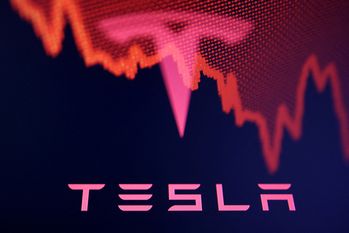Tesla unveils affordable car plans as sales drop sharply

Tesla's New Affordable Car: A Strategic Move Amid Sales Decline
Tesla has announced the development of an initial version of an affordable car, a move that could help counteract the steep decline in sales the company has experienced across global markets. This development comes as the electric vehicle manufacturer faces challenges from rising competition and growing concerns about its CEO, Elon Musk.
Despite the recent struggles, Tesla reported better-than-expected profit margins on car production, even though its quarterly sales fell significantly. The company's stock dropped by 2.6% in after-hours trading following the release of its financial results. The decline marks the worst quarterly sales performance in over a decade, with profits missing Wall Street expectations.
The company is now aiming to begin volume production of its long-promised more affordable vehicle in the second half of this year. This initiative is seen as crucial for rekindling demand, especially in light of increasing competition from cheaper electric vehicles (EVs) in China and ongoing backlash against Musk's political views.
Financial Performance and Market Challenges
Tesla's CFO, Vaibhav Taneja, mentioned during an investor call that the production of the new, more affordable model will ramp up next quarter, albeit at a slower pace than initially anticipated. However, the company did not provide an update on its full-year delivery forecast, leaving investors in the dark about future projections.
Analyst Jacob Bourne from Emarketer noted that while Tesla's results are disappointing, the introduction of a truly affordable model could be a game-changer if positioned effectively without undermining its higher-priced models.
This marks the second consecutive quarter of declining revenue, with a 12% drop. Despite launching a refreshed Model Y SUV, which was expected to boost demand, the results fell short of investor expectations. Additionally, a 51% decrease in sales of automotive regulatory credits, which other automakers purchase from Tesla, further impacted revenue and profit.
Revenue for the April-June quarter dropped to $22.5 billion, compared to $25.50 billion in the same period last year. Adjusted profit per share stood at 40 cents, below the average estimate of 43 cents per share.
Production and Future Projects
Tesla's global deliveries fell by 13.5% in the second quarter, failing to meet Wall Street targets. The company had previously stated it would start producing the more affordable model by the end of the first half, but sources indicated that the vehicle—a stripped-down version of the Model Y—would face delays. On Wednesday, Tesla did not reveal any details about the model, including how many units have been produced or its pricing strategy.
In addition to the affordable car, Tesla continues to work on its custom-built robotaxi, known as the Cybercab, and the Semi truck, both of which are expected to be in volume production by 2026. These projects are central to Tesla's long-term vision and are key factors in maintaining its trillion-dollar valuation.
Investor Concerns and Leadership Challenges
Investors are increasingly concerned about whether Musk can maintain his focus on Tesla after forming a new political party and engaging in conflicts with President Donald Trump. Earlier, Musk had promised to reduce his involvement in government affairs and concentrate on his companies.
A series of high-profile executive departures, including a longtime confidant who oversaw sales and manufacturing in North America and Europe, has added to these concerns. The uncertainty surrounding leadership and strategic direction is affecting investor confidence.
As Tesla navigates these challenges, the success of its new affordable car and its ability to manage internal and external pressures will be critical in determining its future trajectory.